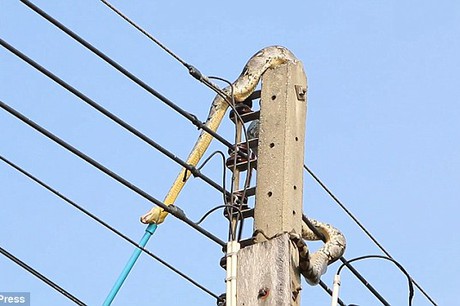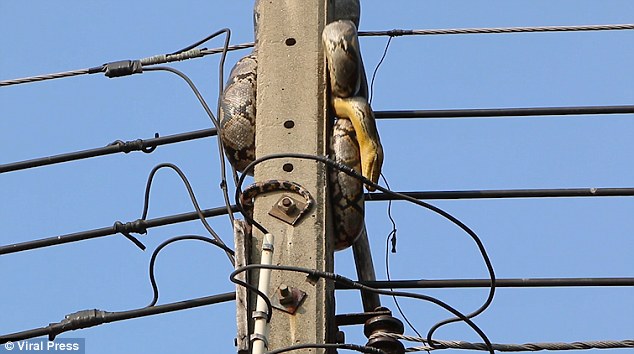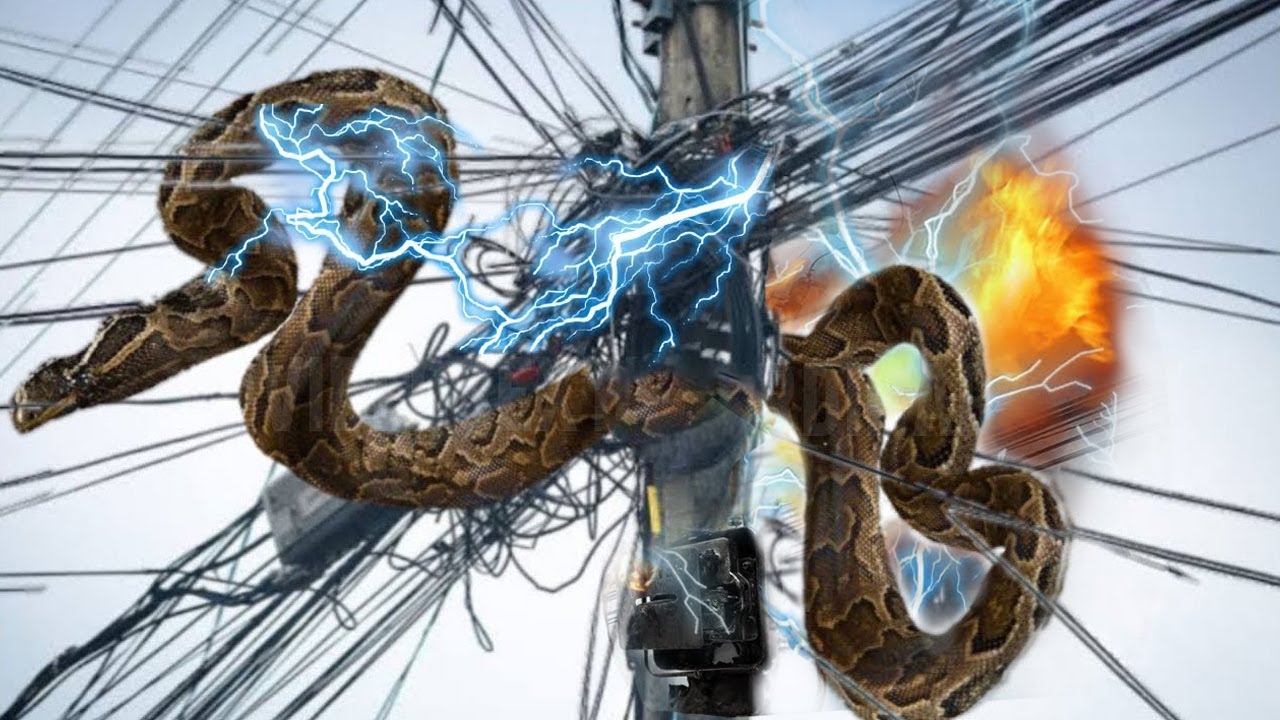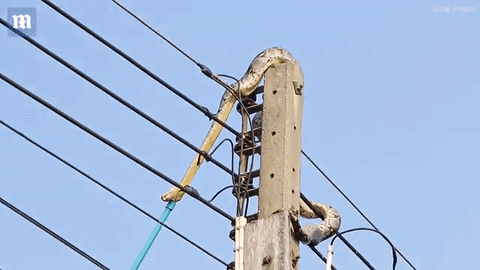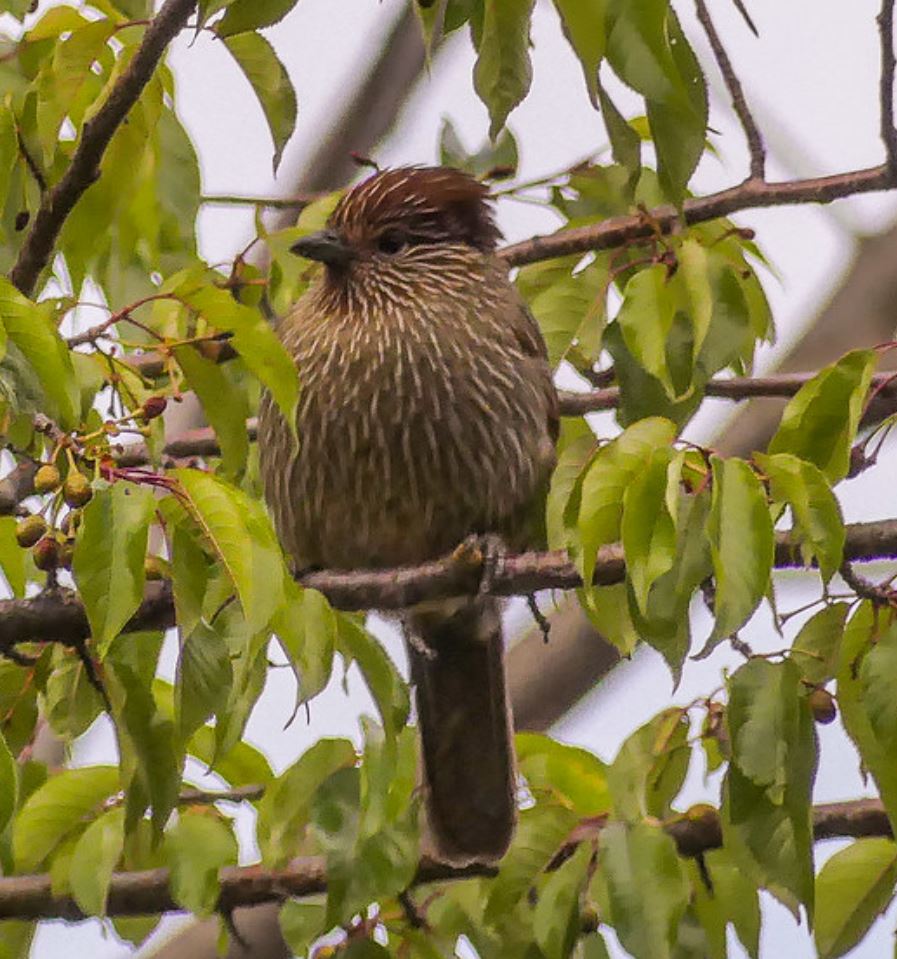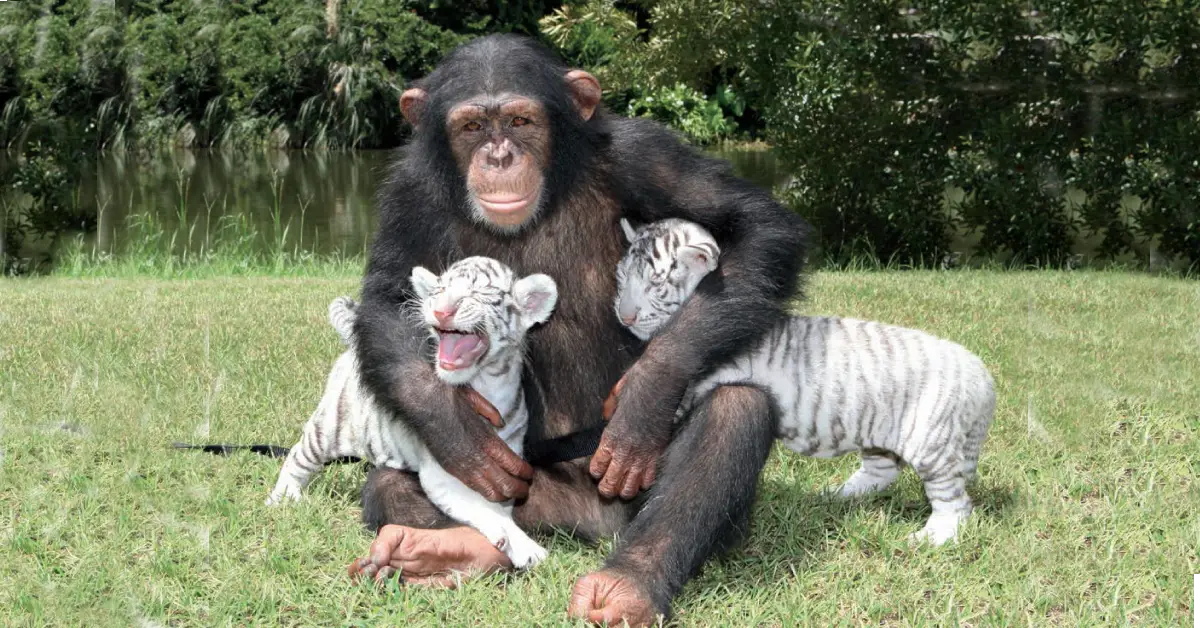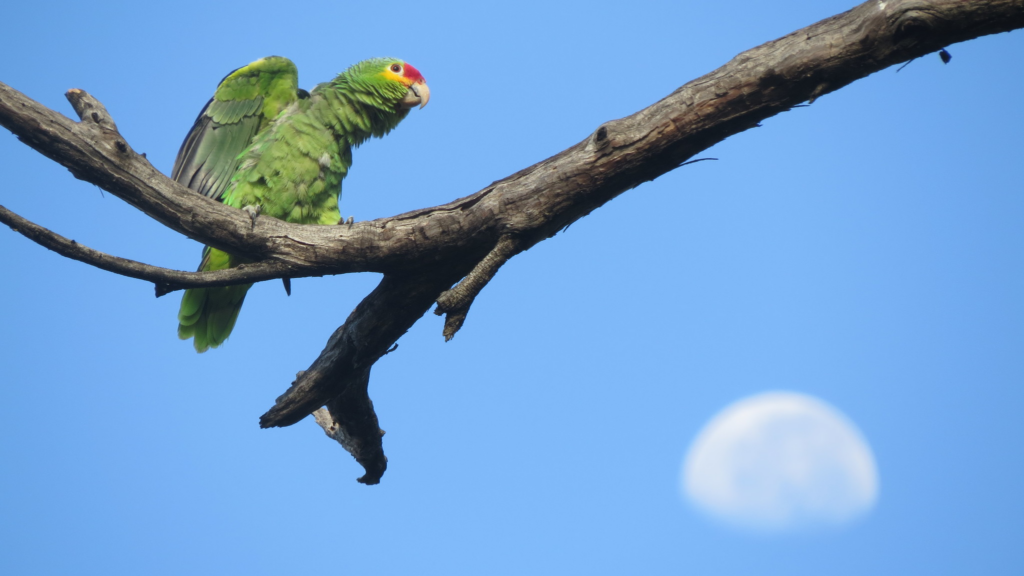In a shocking and chilling incident recorded on video, an immense python, measuring a staggering 40 meters in length, was seen gliding over a high voltage pole only to be tragically electrocuted. Heartbreaking images of this unprecedented event have left viewers around the world in awe of the sheer power and unpredictability of nature.
Today’s video, which has quickly circulated across various social media platforms, documents the harrowing moment the python ventured into the dangerous territory of a high-voltage pole. This unforeseen and exciting episode with wildlife has aroused fascination and vigilance among viewers.
Pythons are famous for their remarkable adaptability and elusive behavior in the wild. However, the recent incident sheds light on the unprecedented behavior of a python choosing a high-voltage pole as a temporary habitat. The reasons behind such behavior remain a topic of particular attention among experts, adding an air of mystery to this already extraordinary event.
As the comfortable snake navigated the high-voltage pole, it inadvertently made contact with the live wires, resulting in a heartbreaking demonstration of nature’s unpredictability. The python, which measured a staggering 40 metres, was unfortunately struck, leaving onlookers horrified by the sheer force of the electrical current coursing through its massive structure.
This incident serves as a poignant reminder of the refuges wildlife face in the ever-changing landscape dominated by human infrastructure. The interaction between wildlife and man-made structures often leads to unexpected and sometimes tragic results, underscoring the need for greater awareness and conservation efforts.
In the realm of wildlife, the expected often takes center stage, as seen in the video that captures the enormous python’s predestined stride toward a high-voltage pole. This extraordinary episode serves as a clear example of the delicate balance between nature and human life, urging us to reflect on the impact of our actions on the creatures that share our planet.
